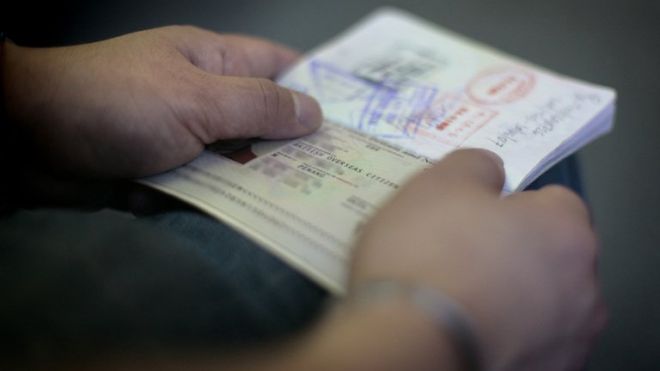KUALA LUMPUR, Jan 7 — Malaysian passports have taken the thirteenth place in an international ranking by the Henley Passport Index, with a score of 178.
However, this is down by one point when compared to last year when it held the twelfth place at a global level.
Meanwhile, other developed Asian countries have maintained their dominance on their citizens’ privilege to be able to travel with visa-free or visa-on-arrival access to other countries under the index.
The index is a ranking system of all the world’s passports according to the number of destinations their holders can access without a prior visa.
It has ranked Japan at the top spot of the index for the third year running with a visa-free/visa-on-arrival score of 191. This means that Japanese citizens can easily travel to 191 countries without requiring a visa.
Global residence and citizenship planning consultants Henley and Partners, founder of the index, said in a statement has dropped to second position with a score of 190 and South Korea has gone down to number three.
“For the third consecutive year, Japan has secured the top spot on the index — which is based on exclusive data from the International Air Transport Association (IATA) — with a visa-free/visa-on-arrival score of 191.
“Singapore meanwhile drops to second place position with a score of 190, while South Korea drops further down a rank to third place alongside Germany (despite gaining 1 score point), giving their passport holders visa-free/visa-on-arrival access to 189 destinations worldwide.
“Japan’s passport managed to pull ahead of Singapore as it received visa on arrival access to Saudi Arabia, which Singapore did not,” said the statement.
The United States and the United Kingdom continued their downward trajectory on the index’s rankings.
While both countries remain in the top 10, their shared eighth place position is a significant decline from the number one spot they jointly held in 2015.
Elsewhere in the top 10, Finland and Italy share fourth place, with a score of 188, while Denmark, Luxembourg, and Spain together hold fifth place, with a score of 187.
The index’s historic success story remains the steady ascent of the UAE, which has climbed a remarkable 47 places over the past 10 years and now sits in eighteenth place, with a visa-free/visa-on-arrival score of 171.
On the other end of the travel freedom spectrum, Afghanistan remains at the bottom of the index, with its nationals only able to visit a mere 26 destinations visa-free.
The firm’s Head of Southeast Asia and Managing Partner Dominic Volek said that the latest ranking is a window into a rapidly changing world.
“The benefits of open-door policies and mutually beneficial trade agreements can no longer be denied.
“Based on our ongoing research, countries that embrace this new reality of global mobility are thriving, with their citizens enjoying ever-increasing passport power and travel freedom, as well as the array of benefits that come with it,” said Volek.
At the same time, the statement claims that political science researchers have been able to utilise the data from the passport index to find that there is a strong positive correlation between travel freedom and other kinds of liberties ranging from economic to political as well as individual freedoms.
Syracuse University’s academic Uğur Altundal and Pittsburgh University’s Ömer Zarpli have observed a “distinct correlation between visa freedom and investment freedom.”
Similar to trade freedom, countries that rank highly in investment freedom generally have stronger passports.
European states such as Austria, Malta, and Switzerland clearly show that countries with a business-friendly environment tend to score highly when it comes to passport power.
Middle Eastern countries have also made strong gains as part of overall efforts to boost trade and tourism.
The UAE and Saudi Arabia each climbed four places, while Oman climbed three. Saudi Arabia is now in sixty-sixth place, with citizens able to access 77 destinations around the world without a prior visa, while Oman sits in sixty-fourth place, with a visa-free/visa-on-arrival score of 79.
However, the study also shows that despite the increasing mobility of citizens of privileged nations such as Japan who can access more than 165 countries, there is also a growing divide when it comes to travel freedom as countries such as Afghanistan, where its nationals can only visit 26 countries visa-free.
The extraordinary mobility gap is the starkest since the index inception in 2006.



















